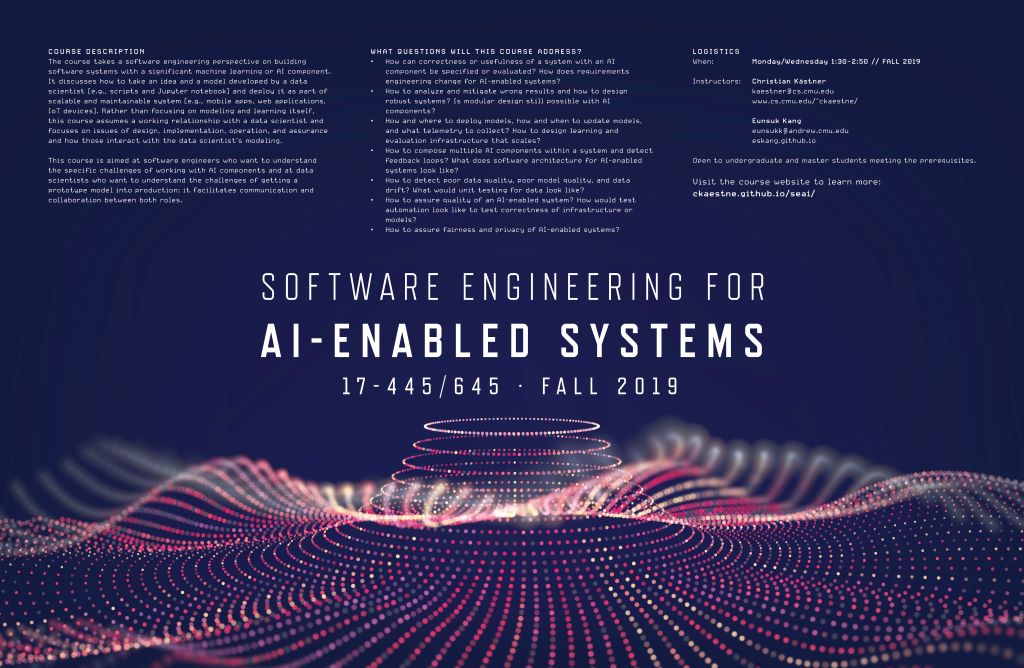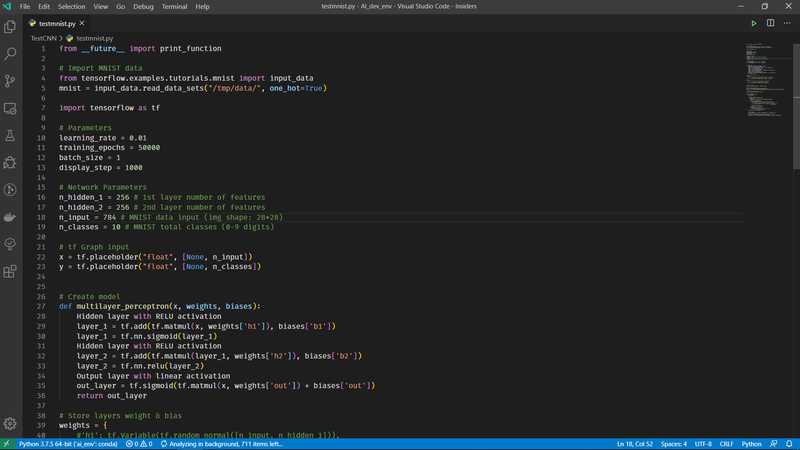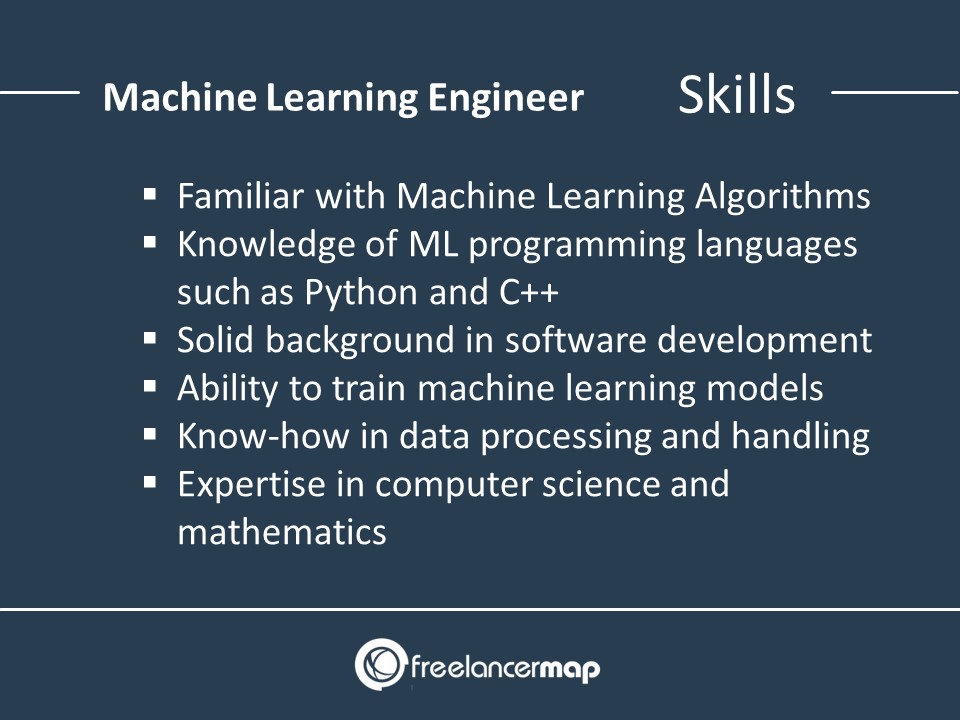All Categories
Featured
Table of Contents
- – Little Known Facts About Software Engineering ...
- – Some Known Facts About Computational Machine L...
- – Not known Details About How To Become A Machi...
- – Get This Report on Best Online Software Engin...
- – The Of Generative Ai For Software Development
- – Some Known Incorrect Statements About Certif...
My PhD was one of the most exhilirating and exhausting time of my life. All of a sudden I was surrounded by individuals who could fix hard physics questions, understood quantum auto mechanics, and might develop interesting experiments that obtained published in leading journals. I seemed like a charlatan the entire time. But I dropped in with a good group that encouraged me to discover points at my very own speed, and I spent the next 7 years learning a lots of things, the capstone of which was understanding/converting a molecular dynamics loss feature (including those painfully found out analytic derivatives) from FORTRAN to C++, and writing a slope descent regular straight out of Numerical Recipes.

I did a 3 year postdoc with little to no artificial intelligence, simply domain-specific biology things that I really did not discover fascinating, and lastly procured a work as a computer researcher at a national lab. It was an excellent pivot- I was a concept private investigator, suggesting I could request my very own grants, write papers, etc, but really did not need to educate courses.
Little Known Facts About Software Engineering For Ai-enabled Systems (Se4ai).
However I still really did not "get" artificial intelligence and intended to work somewhere that did ML. I attempted to get a job as a SWE at google- experienced the ringer of all the hard inquiries, and ultimately obtained rejected at the last action (thanks, Larry Page) and mosted likely to benefit a biotech for a year before I ultimately procured hired at Google during the "post-IPO, Google-classic" age, around 2007.
When I got to Google I rapidly browsed all the tasks doing ML and located that various other than ads, there actually wasn't a great deal. There was rephil, and SETI, and SmartASS, none of which seemed also remotely like the ML I wanted (deep neural networks). So I went and concentrated on various other stuff- discovering the dispersed modern technology underneath Borg and Colossus, and grasping the google3 pile and manufacturing settings, mostly from an SRE perspective.

All that time I would certainly invested in device learning and computer system facilities ... mosted likely to writing systems that loaded 80GB hash tables right into memory just so a mapper could compute a tiny part of some gradient for some variable. Regrettably sibyl was actually a horrible system and I obtained started the team for informing the leader properly to do DL was deep neural networks on high efficiency computing hardware, not mapreduce on low-cost linux cluster devices.
We had the data, the formulas, and the compute, at one time. And also better, you didn't require to be inside google to make the most of it (other than the large data, which was transforming promptly). I understand sufficient of the math, and the infra to finally be an ML Engineer.
They are under extreme pressure to obtain results a couple of percent far better than their collaborators, and then once released, pivot to the next-next point. Thats when I came up with among my legislations: "The greatest ML versions are distilled from postdoc tears". I saw a couple of individuals break down and leave the sector forever simply from dealing with super-stressful tasks where they did magnum opus, yet only reached parity with a competitor.
Imposter syndrome drove me to conquer my imposter syndrome, and in doing so, along the means, I discovered what I was going after was not actually what made me satisfied. I'm much more completely satisfied puttering regarding using 5-year-old ML technology like things detectors to enhance my microscope's capacity to track tardigrades, than I am attempting to come to be a renowned researcher who uncloged the tough issues of biology.
Some Known Facts About Computational Machine Learning For Scientists & Engineers.

Hi globe, I am Shadid. I have actually been a Software program Engineer for the last 8 years. I was interested in Machine Learning and AI in university, I never had the opportunity or patience to go after that enthusiasm. Currently, when the ML field expanded significantly in 2023, with the newest innovations in large language models, I have a dreadful longing for the road not taken.
Partly this insane concept was also partly inspired by Scott Youthful's ted talk video titled:. Scott chats concerning exactly how he ended up a computer technology level just by adhering to MIT educational programs and self examining. After. which he was also able to land an entry degree position. I Googled around for self-taught ML Designers.
At this point, I am not exactly sure whether it is possible to be a self-taught ML designer. The only method to figure it out was to try to try it myself. Nonetheless, I am positive. I prepare on enrolling from open-source training courses offered online, such as MIT Open Courseware and Coursera.
Not known Details About How To Become A Machine Learning Engineer In 2025
To be clear, my objective below is not to construct the next groundbreaking model. I simply want to see if I can obtain a meeting for a junior-level Equipment Discovering or Data Engineering work hereafter experiment. This is totally an experiment and I am not attempting to transition right into a role in ML.

I intend on journaling about it regular and recording whatever that I research study. Another please note: I am not starting from scrape. As I did my undergraduate degree in Computer Engineering, I understand some of the fundamentals required to draw this off. I have solid background understanding of solitary and multivariable calculus, linear algebra, and stats, as I took these training courses in school concerning a years earlier.
Get This Report on Best Online Software Engineering Courses And Programs
I am going to omit numerous of these courses. I am going to focus primarily on Device Knowing, Deep discovering, and Transformer Design. For the first 4 weeks I am going to concentrate on finishing Artificial intelligence Expertise from Andrew Ng. The goal is to speed up run with these very first 3 training courses and obtain a solid understanding of the essentials.
Since you have actually seen the course recommendations, below's a quick overview for your understanding maker discovering journey. We'll touch on the requirements for most maker learning programs. Extra advanced courses will certainly need the adhering to knowledge before beginning: Straight AlgebraProbabilityCalculusProgrammingThese are the general components of having the ability to understand how device learning works under the hood.
The very first course in this checklist, Machine Understanding by Andrew Ng, contains refresher courses on the majority of the mathematics you'll need, yet it may be testing to discover maker learning and Linear Algebra if you haven't taken Linear Algebra before at the exact same time. If you require to clean up on the mathematics needed, look into: I 'd advise finding out Python considering that most of good ML programs use Python.
The Of Generative Ai For Software Development
In addition, another excellent Python source is , which has many totally free Python lessons in their interactive internet browser environment. After finding out the requirement essentials, you can start to really understand exactly how the formulas work. There's a base collection of formulas in artificial intelligence that everybody must recognize with and have experience utilizing.

The courses listed over have essentially every one of these with some variant. Understanding just how these strategies work and when to utilize them will be crucial when taking on brand-new jobs. After the essentials, some even more advanced techniques to learn would be: EnsemblesBoostingNeural Networks and Deep LearningThis is simply a start, but these formulas are what you see in some of the most fascinating machine discovering services, and they're sensible additions to your toolbox.
Discovering device discovering online is challenging and extremely rewarding. It's important to remember that simply watching videos and taking tests does not suggest you're really discovering the product. Go into key phrases like "machine discovering" and "Twitter", or whatever else you're interested in, and struck the little "Produce Alert" link on the left to get e-mails.
Some Known Incorrect Statements About Certificate In Machine Learning
Machine discovering is incredibly pleasurable and amazing to learn and trying out, and I hope you discovered a program over that fits your very own trip right into this interesting field. Device understanding composes one part of Information Science. If you're additionally curious about finding out about statistics, visualization, data evaluation, and more make certain to take a look at the top information science courses, which is a guide that complies with a similar format to this one.
Table of Contents
- – Little Known Facts About Software Engineering ...
- – Some Known Facts About Computational Machine L...
- – Not known Details About How To Become A Machi...
- – Get This Report on Best Online Software Engin...
- – The Of Generative Ai For Software Development
- – Some Known Incorrect Statements About Certif...
Latest Posts
How To Crack Faang Interviews – A Step-by-step Guide
The Ultimate Guide To Preparing For An Ios Engineering Interview
Interview Strategies For Entry-level Software Engineers
More
Latest Posts
How To Crack Faang Interviews – A Step-by-step Guide
The Ultimate Guide To Preparing For An Ios Engineering Interview
Interview Strategies For Entry-level Software Engineers